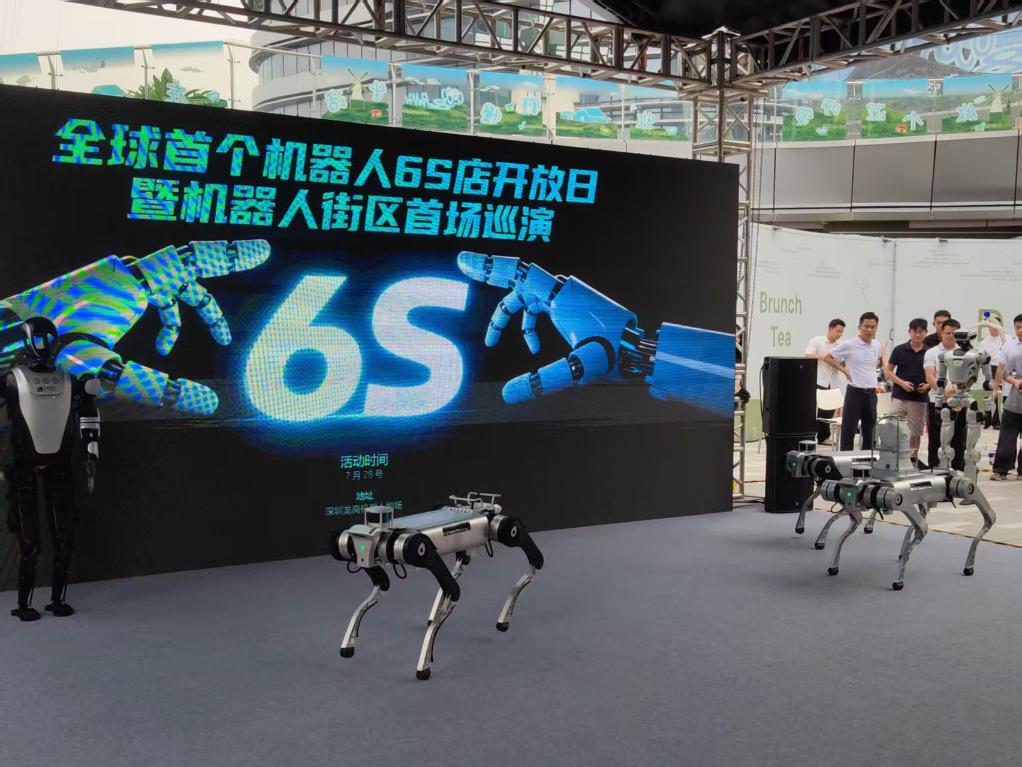
(Photo: Xinhua)
A robot 6S store, claimed to be the world's first of its kind, opened to the public on Monday in Longgang District of Shenzhen, south China's Guangdong Province, according to local authorities.
A total of 26 robot companies, including Unitree Robotics, signed cooperation agreements with the store on the same day.
Currently, more than 200 companies from across the industry chain have expressed interest in joining the store's services, including nearly 50 humanoid and service robot firms. These companies cover the entire industry chain, from core component research and development to complete machine manufacturing, software algorithms and application scenarios.
Building on the traditional auto 4S store model of "sale, spare part, service and survey," the robot 6S store has added two new services: on-demand leasing and fully customized products, said its operator, Shenzhen Future Times Robotics Co., Ltd.
It redefines the service standards and supply-demand connection model of the robot industry, providing an efficient bridge that facilitates the transition of robots from the lab to the market while transforming technical concepts into real-life applications, according to the operator.
The leasing services offered by the 6S store cover a variety of scenarios, including exhibition reception, event performance and emergency inspection. This flexible leasing model not only lowers the barrier for companies and individuals to use robots but also quickly validates the application potential of robots in different scenarios in the short term, providing data support for future market expansion, the operator said.
Its customized services are expected to meet different industrial needs: Restaurants need service robots that can carry and deliver food, factories need industrial robots that can move heavy objects, while research institutions need experimental robots with specific sensors.
It will also set up a verification center where companies can simulate real-life scenarios to test the operational stability, interaction smoothness and safety reliability of robots, facilitating robot application, according to the store operator.






